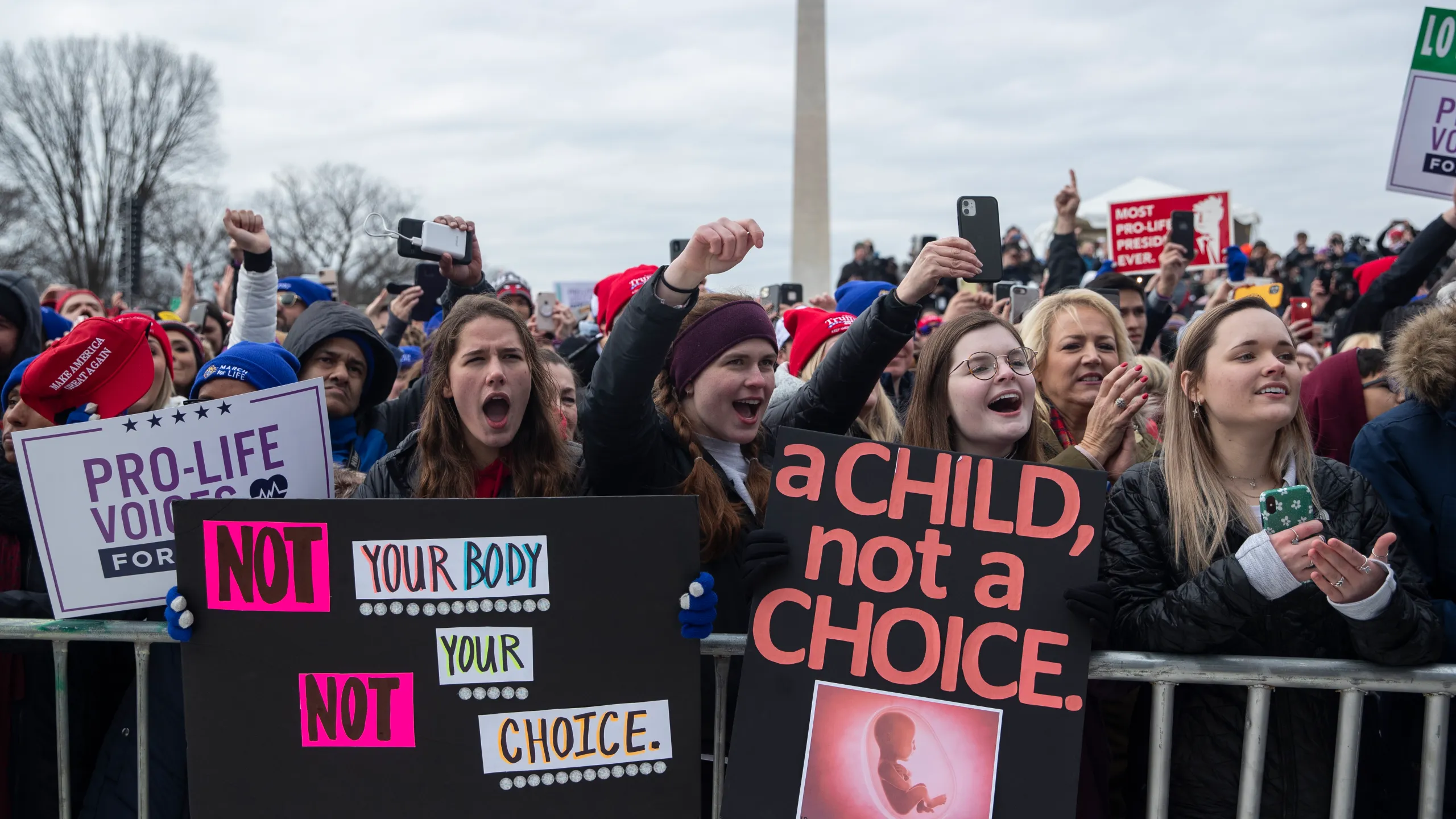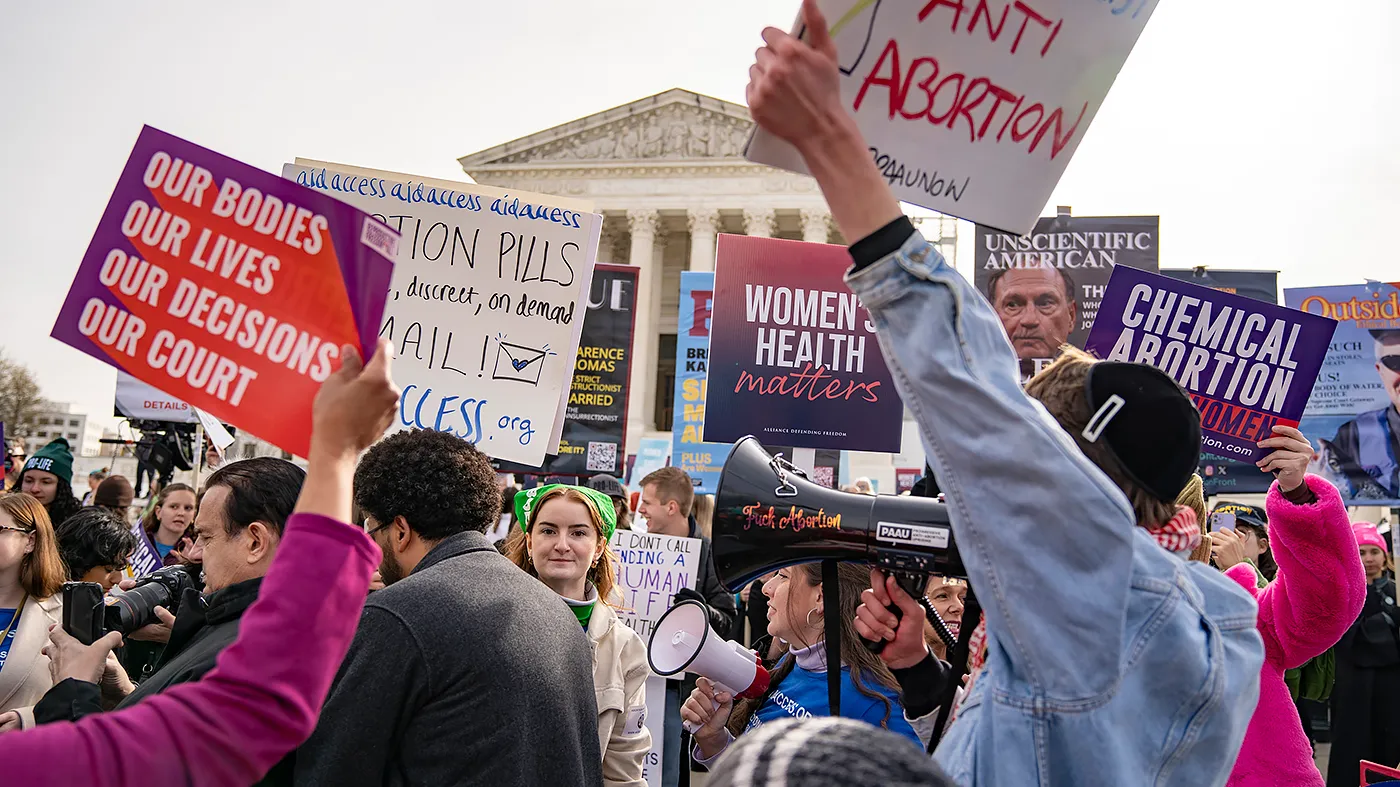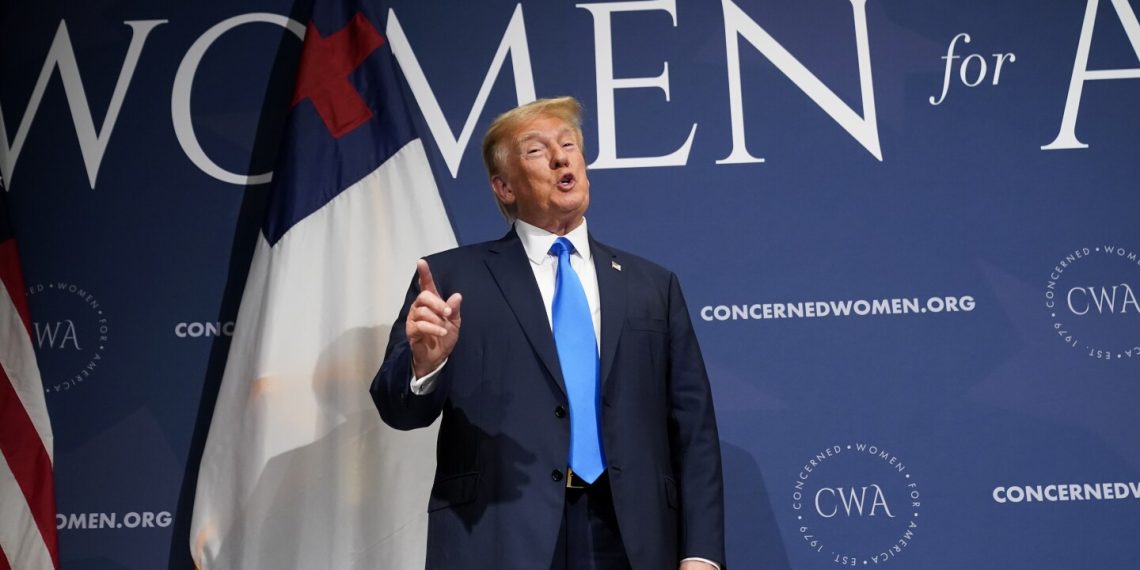Former President Donald Trump has taken a pragmatic approach to the abortion debate, opting not to campaign for a federal abortion ban and instead supporting the status quo of leaving the issue to individual states.
This decision comes in the wake of the Supreme Court’s overturning of Roe v. Wade, which has reignited discussions around abortion policy.
While Democrats had hoped to use abortion as a key issue against Republican candidates, especially in swing states like Michigan, Pennsylvania, and Wisconsin, Trump’s moderate stance could lessen the impact of abortion on electoral outcomes.

By advocating for state-level decision-making, Trump aims to appeal to a broader range of voters while avoiding alienating pro-choice or pro-life constituents.
In a statement posted on his social media platform, Trump emphasized the importance of letting the people and voters decide on abortion policies.
He refrained from endorsing any specific federal involvement, highlighting exceptions for cases involving rape, incest, and the woman’s life. This approach aligns with President Reagan’s position and underscores Trump’s desire to maintain political viability.
Trump’s decision has received mixed reactions, with some pro-life groups expressing disappointment over his reluctance to push for national abortion restrictions.

However, others acknowledge the strategic implications of his stance, particularly in swing states where abortion has been a decisive factor in past elections.
Democrats, meanwhile, plan to continue using abortion as a rallying cry to mobilize their base. However, Trump’s moderate position may undermine their efforts to paint Republicans as extreme on reproductive rights issues.
Despite Trump’s attempt to address the abortion debate cautiously, the topic remains contentious and likely to shape the political landscape in the upcoming elections.





